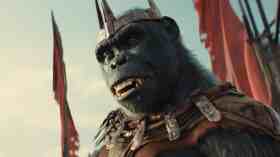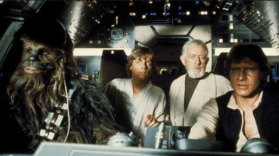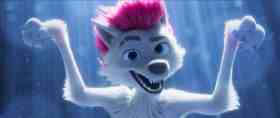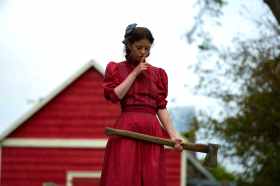Every evening at 5:00pm a man in his late 50s commutes home through the outer suburbs of Melbourne. As the seasons pass in gentle rhythm, we observe – as he does – the dramatic events and mundane details of life. We also learn more about him and his relationships – with his wife, his mother, deceased sister, and a younger co-worker whom he occasionally drives home. Within the microcosm of the car, the film becomes a meditation on the passage of time, and how the relationships in our life sustain us.
This is David Easteal’s The Plains (2022), a three-hour film that is part fact, part fiction, and wholly fascinating. Premiering locally at MIFF last year (internationally at Rotterdam) and now streaming on MUBI, The Plains has generated quite a bit of buzz for its uniquely constructed style and its meditation on the ordinary.
Easteal talked to us about making The Plains, the future, and why he doesn’t like labels.
Hi David! I loved, and was fascinated by, The Plains. Though, am I the first person to tell you I got motion sickness watching it?
David Easteal: I’ve heard a lot of different reactions to the film, but indeed you are the first person to tell me that. I tend to get motion sickness in cars when I’m looking down at my phone and taking my eyes off the road, I hope that means you weren’t looking at your phone too much!
I usually prefer to drive or be up front in real life as well, but there is a peacefulness to being in the backseat, a freedom to observe, listen in. I like it especially as a place to film from.
The Plains is heading straight for cult status – how does that make you feel?
To see the film find an audience and resonate with people around the world has been extraordinary. I really have to thank the film festivals, programmers and critics who have supported the film. A film like this would have little chance of being noticed without them.
I don’t like to speculate too much on the future status of a work. A major theme in the film is impermanence. I think I am drawn to film in part due to its unique ability to capture passing time, in something of a defence against the passage of time. If people are still watching the film in coming years, that would be fantastic.
Recently I found myself driving the same stretch of road that Andrew drives on, and it is already quite different from the time we filmed. I like the idea of people thinking of Andrew as they get off Blackburn Road and start heading towards the city along the Monash – seeing the route change over time, and how the world around it has changed.
How did you approach directing The Plains as (a) a first time feature director and (b) one of the main subjects/characters of the film?
Someone once told me there is a difference between making a film ‘about’ someone, as opposed to making a film ‘with’ someone. This film was definitely the latter.
We shot over 12 months, and we were working things out as we went. I was in an ongoing dialogue with Andrew and his wife Cheri. In working with non-professional actors playing a version of themselves trust is important, which is something that must be cultivated. Andrew and I had an existing friendship, which grew further over the course of the film and slowly we went to more emotional places. It was as though the growth of trust in real life matched that of the relationship between the characters in the film.
In large part my inclusion in the film – playing a version of myself – was out of necessity and pragmatism. Among other things, it permitted me a way to direct the film by shaping the conversation during those long, uninterrupted takes.
How do you direct the main subject/character Andrew, considering this is a pretty intimate study?
I think Andrew would say he’s playing a version of himself, not himself. And likewise Cheri, and myself. Certainly there are autobiographical elements, but it’s not a straight autobiography or fly-on-the-wall documentary, it’s constructed. I was always working to make it a narrative work, something to be viewed from start to finish, not something like a gallery work that you enter at any stage. Although it draws from reality, the reality has been manipulated and shaped for the purposes of making a film.
As our trust and bond grew stronger, we found a groove and I was able to provide direction in terms of his performance. There are many aspects unique to Andrew’s personality, and how he communicates, which were important to me to retain in the film.
I think Andrew understood the project, and what we were going for, and is quite talented as a performer. Although he is playing a version of himself, it is still a performance, and quite a remarkable one.
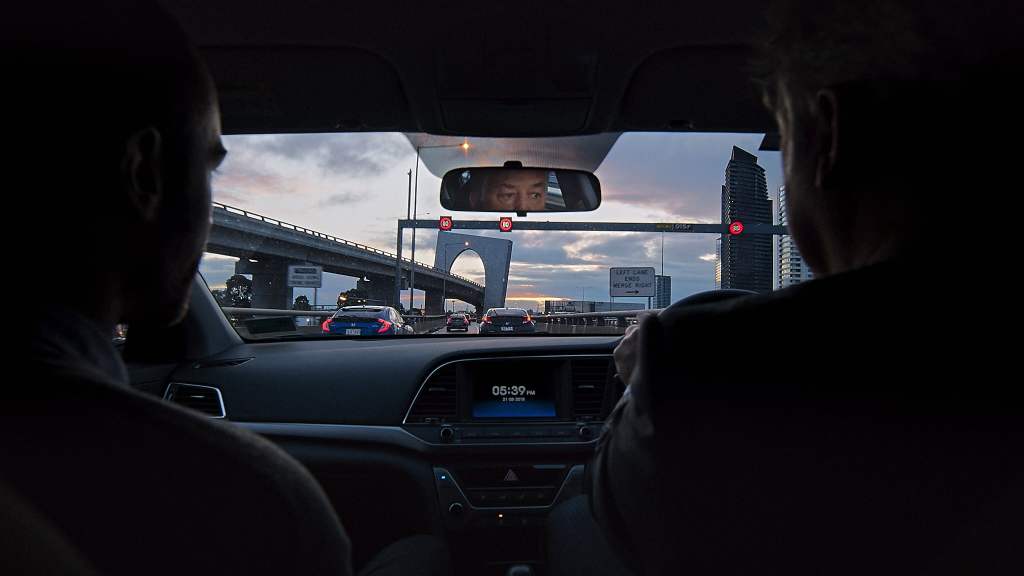
Was this scripted or is it genuine, off-the-cuff conversation?
From the outset of the project I knew broadly where the film was going to go. Each month I would embark upon a process of writing what was to occur in the next month’s shoot, keeping in mind the overall shape of the film. I would discuss the plan with Andrew and Cheri.
When we came to shoot the next scene, we were both on the same page, not regarding precise dialogue, but rather the overall content and structure of the conversation to be filmed that day. The dialogue was improvised within that structure.
A few things altogether spontaneous arose from time to time during the drive, perhaps responding to what was occurring in the world around the car during the take, but for the most part the conversation was mapped out.
In writing the film in this incremental way, it began to evolve and take shape in many unexpected ways that could not have been foreseen at the start of the shoot. Events were happening in all our lives, and what started out as a dramatisation of events years past, began to evolve and become more complicated.
How do you classify this movie? It’s not quite documentary or fiction, though some have called it ‘slow cinema’ or ‘endurance cinema’.
Labels are not really something I thought too much about when making the film. And the terms are so nebulous. I can understand why the label ‘hybrid’ is used a lot in relation to the film. At the very least the windscreen in the film provides a frame within frame of the film, documenting the streets of Melbourne in a relatively un-mediated way.
What is occurring in the cabin of the vehicle is more controlled, but re-enactment and construction is often used in documentaries as well. There is a visual composite of documentary and fiction within the frame, which perhaps mirrors or complements the same composite occurring in the film’s narrative and story.
Regarding labels such as ‘slow cinema’, I don’t think so much about those either. In The Plains a lot happens, and it doesn’t seem particularly slow to me. Sometimes I see a 30-minute film and it feels like four hours, and I see a seven-hour film and the time flies by.
It is a film that is interested in time, and as I mentioned before I am interested in film’s unique ability to capture and preserve the passing of time. In that sense labels like ‘durational cinema’ perhaps sit more comfortably with me, labels which address the film’s interest in, and giving prominence to, the representation of time.
How do you go about filming all the driving scenes?
We filmed on the actual streets, in rush hour, and as such only usually had the ability to have one take per day – you could not fake the light at that time, nor the traffic. Most months we filmed over two days, for the course of the year.
In the car there was the cinematographer, Simon J Walsh, and sound recordist, being Steven Bond or myself, sitting in the back seat, together with the camera. We couldn’t just rig the car up and remove everyone. I was in the car for direction (whether as a passenger or from the backseat), and there are a lot of subtle camera adjustments that were required to be made by the cinematographer, such as iris pulls.
When Andrew was in the car alone I did the sound recording, and when I was acting we had a professional sound recordist. That was the extent of the shooting crew, which gave us high degree of flexibility and also made the shoot a really warm, intimate environment.
And the drone shots that separate the commuting sequences – are these all Andrew’s videos?
Andrew filmed these videos around his property on the Wimmera region of western Victoria. They are a mix of videos that were recorded prior to the shoot and others which I asked Andrew to film specifically for the film. During the shoot Andrew showed me some videos he had taken of the property, and I also visited and stayed overnight at the property.
I decided to bring these videos into the film, which I thought were quite cinematic, first by the use of the iPad in a scene. In the edit I then introduced some of the videos directly into the cut, and really liked what they added and how they spoke to themes of the film.
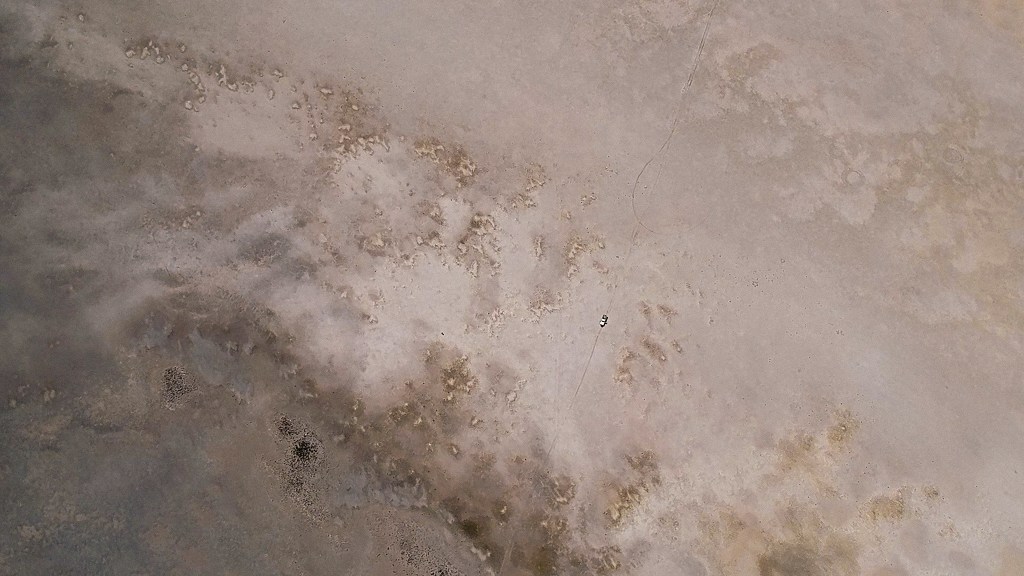
The radio segments we hear, are they played in-scene or were they added in post?
The radio and the music were all recorded independently and added in post-production. It ended up being one of my favourite elements of the film. We recorded a sort of fake radio show where I gave Jon Faine, who thankfully came on board, a list of topics.
Jon had a few suggestions about those topics and what might happen. We organised a number of callers who rang in and recorded the fake radio show in real time at the sound designer’s studio. The callers were great. Some of them were Andrew’s friends.
I had a friend who was at that time producing talkback radio in a regional city in Victoria and if they were a bit quiet on any specific day, they had a list of locals regulars that they could call up, so we enlisted some of them. It was only scripted insofar as the topics provided – Jon can riff on whatever topic you give him.
The talkback did something interesting in the film. There’s a sense of isolation in the commute. You’re amongst all these other people moving through the city, but you’re separate from them. The radio brings in a broader socio-political context of what’s going on with others in the city. In the context of the film, whenever there’s a silence, Andrew puts the radio on.
One of the top reviews says ‘I wonder if David Easteal knows he made … maybe the best Australian film of the century’, so my question to you is: do you agree? What do you think of such high praise?
Critics play such an important role in promoting a film and getting the film seen and finding new audiences, I am extremely grateful to all the critics who have supported the film, the critical response to it has so far been extraordinary.
Some quite prominent critics have pushed the film in a way that has felt so generous, and altruistic, simply from a desire to share their fondness for the work. I’ve certainly never experienced anything like it before, nor could have imagined such a response.
Regarding how I personally feel about praise, of course, you want your work to be well received, and when it resonates with people and there’s a sense you’ve connected it is a lovely feeling. I think of film as an art form and as with all art forms it’s difficult if not impossible to compare different works of art and call one ‘better’ than another or ‘best’.
I try to not read too much into the criticism around the film, not because I think it’s unimportant, quite the opposite – critics have an ability to articulate aspects and themes of the work which are illuminating, in a way I never could. I engage with criticism much more in relation to other’s films. But in relation to my own films I’m wary to become invested in it. I want to know how I feel about the work myself first and foremost.
I certainly feel proud of the film. We all worked very hard. I knew when it started to come together, maybe six months into the shoot, that it was turning into something unique and it felt quite special. I was looking at the rushes and cutting it as we went.
I started to notice what I thought were quite sublime moments, which often came about in large part due to chance, or the interaction between what was occurring inside the car, which was perhaps more controlled, and what was occurring outside of the car, which was completely uncontrolled.
A few things started to happen which just left me stunned, that seemed almost miraculous. Film is interesting in that way, the camera can capture things you don’t see with your eye, and it was really exciting to see it come together and take shape in ways I couldn’t have expected.
There was a real alchemy to it.
The Plains is now available to watch on MUBI

